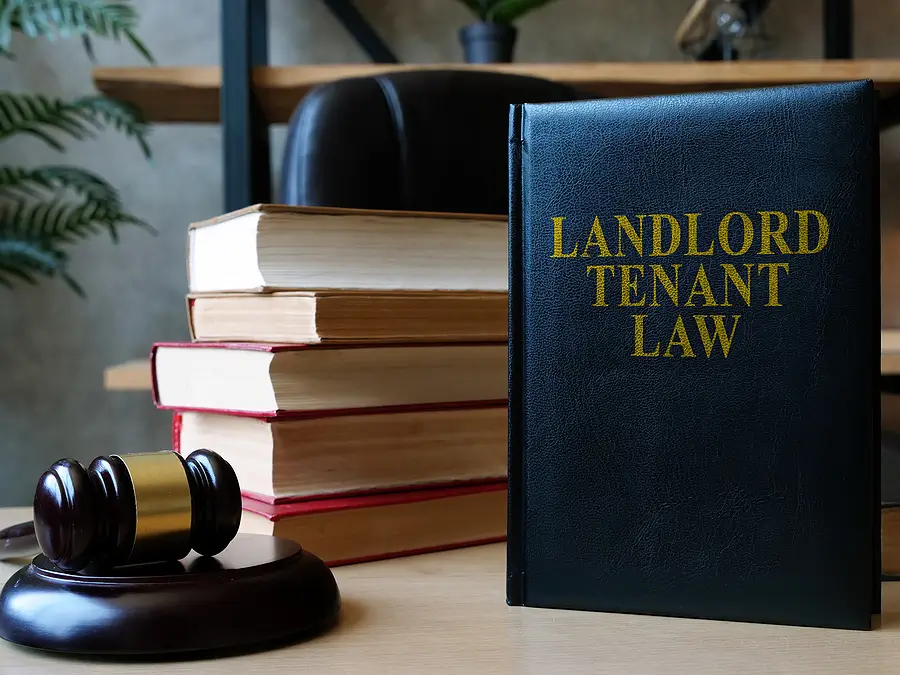Here at GC Realty & Development, we LOVE the city of Chicago. We live and breathe this city, many of us have for the majority of our lives. But when you're working in the real estate industry, specifically in the rental sphere, sometimes you have to deal with a bit of turbulence here.
The legal landscape for landlords is changing in 2025, both in Chicago and the state of Illinois as a whole. Several updates to state law are here, and they will fundamentally change some aspects of your business.
In our ongoing efforts in investor education, we've been rolling out all the pertinent information you need to know this year in Cook County.
In this guide, we'll explain the biggest changes and direct you to the resources you need for the issues that matter to you the most.
1. The Illinois Landlord Retaliation Act: Ban on Retaliatory Conduct
The Landlord Retaliation Act is a landlord-tenant ordinance aiming to do away with retaliatory conduct from landlords when a tenant acts within their legal rights. Tenants have certain legal rights that you cannot impede upon as a residential landlord, and this bill seeks to address the power imbalance between landlords and tenants so the tenant can exercise those rights freely.
The rights tenants cannot be retaliated against include:
Filing complaints to a government agency or representative about the living conditions of the dwelling unit.
Joining a tenant union.
Seeking assistance from essential services within the community or the media.
Testifying in court.
Other measures sought out in good faith to remedy poor conditions.
Retaliatory conduct from the landlord includes:
Refusing to renew a rental agreement.
Increasing the monthly rent unfairly.
Evicting the tenant.
Unreasonably withheld security deposits or increasing the security deposits.
Any other harassment-like behavior such as unreasonable fees or removal of services.
The Landlord Retaliation Act was enacted into Illinois law on January 1st, 2025. If you as a landlord fail to adhere to it, you can face serious legal repercussions.
Learn more about the Landlord Retaliation Act here.
2. Flood Disclosures in Illinois Rental Agreements
The new flood disclosure, an amendment to the Landlord and Tenant Act, aims to protect tenants by ensuring they are informed of rental properties located in areas at risk of flooding.
This amendment will require landlords to disclose flood risks before a rental agreement is signed. This disclosure applies to rental properties located in FEMA-designated flood zones as well as properties with a lower-level rental unit such as a basement. For the latter, this applies whether they are in a flood zone or not due to the risks involved.
A proper written notice of this disclosure should include:
A clear statement that the property is in a flood zone or has flood risks.
Proper notice of the flooding history of the property.
If the property has flood insurance.
Following these requirements closely is important for prospective tenants to make informed decisions when renting. If a residential landlord fails to meet the requirements in full for the tenant notice, it can lead to penalties or legal action.
Read more about flood disclosure requirements and how to adapt here.
3. Changes to Serving Eviction Notices
One new landlord-tenant ordinance that's actually in favor of residential landlords in Cook County involves a small change to the eviction process.
Starting January 1st, 2025, residential landlords in Cook County will be allowed to use private process servers to serve eviction notices rather than having to rely on the sheriff's office to start the eviction process. This change streamlines the process and will potentially allow for less time spent in the notice period. It also allows for more reliable evictions as a whole when a tenant is withholding rent or violating the written lease agreement.
Learn more about the changes to the eviction notice process here.
4. The Tenant Credit Report Law: Screening Prospective Tenants
Another amendment to the Landlord and Tenant Act, the Tenant Credit Report Law also went live on January 1st, 2025. This law will allow prospective tenants to provide their own credit report from a consumer credit agency during the application process in place of the landlord running a credit report on them. This law is designed to limit hidden fees during rental applications and make the process more transparent.
What this means is potentially fewer costs for you during screening and a faster process altogether. however, it does add the challenge of ensuring the legitimacy of the credit reports that applicants submit. If a tenant fails to submit a legitimate report, that could mean a denied application.
Read more about the pros and cons of the Tenant Credit Report law here.
5. Reopening of Rental Assistance
Another piece of big news in the Illinois rental industry is the reopening of rental assistance through the Illinois Housing Development Authority. While not a landlord-tenant ordinance, the reopening of this critical program is great news for both landlords and tenants.
The rental assistance program in Illinois is designed to offer financial help to tenants who are on the verge of eviction due to not being able to pay rent. For you as a landlord, this means otherwise good tenants who have fallen on hard times can get help to pay the rent and can continue with the rental agreement. This avoids costly turnover and can improve your tenant relations when you direct your renters to these programs for help. However, it's critical that both the landlord and tenant follow the rules of this program diligently.
Get more information on the IHDA's rental assistance program and it's rules here.
6. Changes to the Evanston RTLO
If you own a rental property in Evanston specifically, there are several new changes to be aware of. This suburb of Chicago has seen many changes to its landlord-tenant ordinances in recent years, and 2025 will see 5 new updates to the town's Residential Landlord Tenant Ordiance (RTLO). They include:
Caps on late fees for rent payments.
A new 90-day minimum notice when the landlord intends not to renew a tenant's lease agreement.
Explicit protections for tenants forming unions.
A right to "pay and stay" for tenants facing eviction, meaning the landlord must dismiss an eviction suit if the tenant pays all rent that is due at once.
A requirement for Evanston landlords to attach a summary of the RTLO to all written lease agreements.
If you're a landlord in Evanston, you'll want to study all of these changes thoroughly.
We've compiled all the details you need to know on the Evanston RTLO here.
Finding a Path to Rental Property Prosperity in 2025
As much as we love Chicago and Cook County, we know that sometimes being an investor here can be overwhelming. These new laws in 2025 are only a fraction of everything you have to adhere to as a landlord here.
That's why at GC Realty & Development, we're committed to always being two steps ahead of the curve for our owners here in Cook County. If you need help managing your rental properties, we're ready and able to manage your portfolio no matter how big or small!

 Vendor Portal
Vendor Portal



